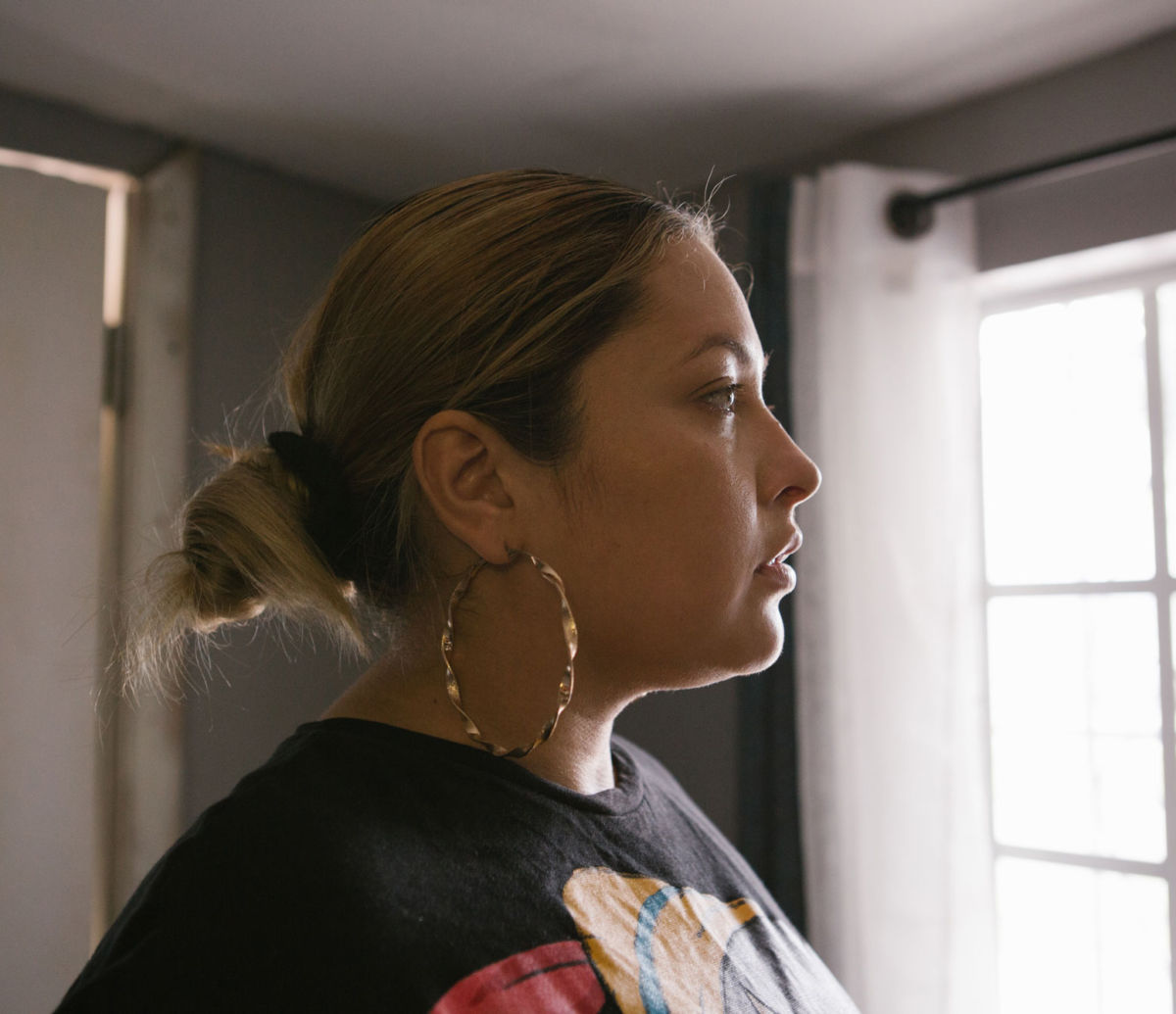Honest, paywall-free news is rare. Please support our boldly independent journalism with a donation of any size.
Nataly Alcantara awoke to two shadows standing in her bedroom.
Her husband and their toddler son lay next to her, with their 3-month-old daughter nestled in a crib beside the bed.
One of the shadows, Alcantara realized, held a knife.
“Give us your money!” one woman shouted while the other pointed a gun at the baby’s crib. Alcantara grabbed a wallet from a nearby shelf. It contained about $300, the family’s savings. She handed it to the intruders. They took the family’s cellphones and ran away.
Alcantara dialed 911 from a roommate’s cellphone. Within minutes, the first squad car had pulled up to her duplex apartment, around 4:30 a.m.
She told the officer what happened. Soon, more city of Miami police officers arrived. Alcantara watched as they unfurled crime scene tape in front of her home, one in a long line of squat one-story houses crowded together in the neighborhood of Allapattah. She heard a helicopter circling overhead. TV reporters arrived with cameras and microphones.
“I was just in shock,” Alcantara told a reporter from CBS Miami.
Around 10 a.m., an investigator came.
Alcantara’s family already had been through so much – death threats in Honduras and a rough journey to the U.S. border. Now, she wanted to know who terrorized her family that morning, in the early hours of Nov. 3, 2014.
So Alcantara helped the police as much as she could. She took their calls and invited them to her home. She flipped through photo packets of mugshots. She even did her own sleuthing and managed to help track down one suspect.
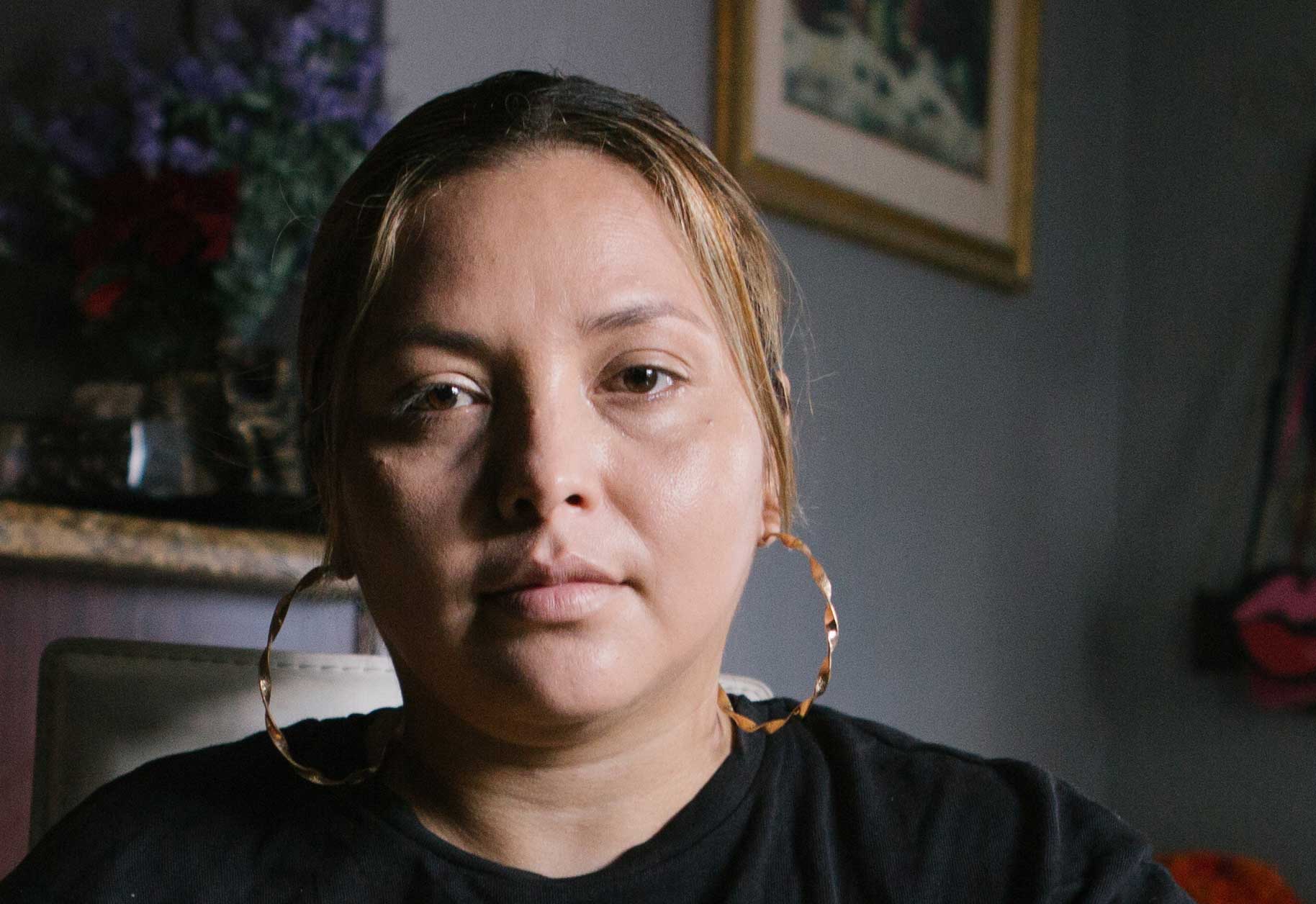
There was just one thing that Alcantara asked of Miami police: that they sign a letter confirming her cooperation. If they did that, she could apply for a U visa, which Congress created nearly 20 years ago to protect immigrant victims and help police solve crimes.
Undocumented immigrants often are afraid to interact with law enforcement, for fear of being deported. The visa is meant to encourage them to report crimes so that criminals can’t strike with impunity.
For Alcantara, the U visa would mean she could gain temporary status and someday apply for a green card. She could get a driver’s license and drive her kids to school when they were older.
But after Alcantara’s months of cooperation, Miami police declined to verify that she helped investigators.
And, in a metropolis built by immigrants from across Latin America, the Caribbean and beyond, it’s something the Miami Police Department does nearly every single time it’s asked. In fact, nearly 20 years after its creation, the U visa is being undermined routinely by law enforcement agencies across the country, an investigation by Reveal from The Center for Investigative Reporting has found.
From border communities in Texas to some of New York’s biggest cities, police leaders are blocking immigrants from even applying for a potentially life-changing visa and sowing distrust, affecting the safety of their entire communities far beyond immigrant neighborhoods.
Reveal’s analysis of policies from more than 100 agencies serving large immigrant communities found that nearly 1 of every 4 create barriers never envisioned under the U visa program. A review based on hundreds of police records and nearly 60 interviews found that victims are at the mercy of whatever internal rules police choose.
“Law enforcement holds that power,” said Florida immigration attorney Kathlyn Mackovjak. “It could be politically motivated, it could be personally motivated, it could be, ‘We don’t have time for this,’ it could be a lot of reasons. And then, of course, the victim pays the price. They don’t even get a chance to apply.”
How the U Visa Has Been Undermined
In 1994, Congress passed the Violence Against Women Act. The law, one of the first in the country to address gender-based violence, provided funding to police and shelters, established a domestic violence hotline, and created protections for immigrant victims if they were married to a U.S. citizen or green-card holder.
But six years after it was passed, lawmakers saw a gap: It didn’t apply to many domestic violence victims or victims of other violent crimes. That was making it harder for police to take criminals off the street.
“We sometimes have people coming here who don’t understand their rights,” California Sen. Barbara Boxer wrote in 2000. “They need to understand their rights, that their bodies don’t belong to anyone else, and they have a right to cry out if they are abused.”
So lawmakers expanded the 1994 law to create the U visa, which grants temporary status to undocumented victims of an array of violent crimes such as rape, domestic violence, kidnapping, and felonious assault.
Immigrants with temporary status, such as a student or work visa, also can apply. To qualify, immigrants must have been the victim of a violent crime and have been helpful in a police investigation. A law enforcement agency must confirm their cooperation by signing a five-page form called a certification.
The certification is a small part of the application process, but without it, a person can’t even apply. Once victims have the certification, a federal immigration official ultimately decides whether they qualify based on a number of factors.
The government caps the number of U visas it gives out at 10,000 a year. Once victims do get certified and apply, they join a backlog of more than 243,000 and can wait for more than a decade to get their petition approved.
The number of petitions rose through the years, but dropped in 2018 for the first time in at least a decade. Some advocates say the Trump administration’s increased immigration enforcement has discouraged victims from contacting police.
But when victims do pursue the visa, they are dropped into a capricious system in which law enforcement officials decide on their own which cases to support or decline. Four agencies simply refuse to consider requests. The police departments in McAllen, Texas; Quincy, Massachusetts; Yonkers, New York; and Rochester, New York, don’t participate in the U visa process.
At least 20 departments have created their own arbitrary rules beyond the federal guidelines. The Gwinnett County Police Department in Georgia, for example, considers the “solvability” of the case. So do four other departments.
The Gwinnett County department declined an interview request, but said in a statement that due to the annual cap on visas, “we try to be responsible in issuing them in those instances which we have the greatest need for a victim.”
Others consider the mental and physical harm caused to the victim, criteria that explicitly isn’t law enforcement’s job. According to federal guidelines, that’s something that should be evaluated only by immigration officials reviewing the victim’s application.
Another 19 agencies contacted by Reveal either declined to provide their U visa procedures or did not return calls for comment.
The U visa is meant to protect victims from deportation while their cases are winding through the criminal justice system. Yet prosecutors in at least three offices – Arlington County, Virginia, as well as Miami-Dade and Orange counties in Florida – are opting to certify cases only after they’ve been closed, Reveal found. Some district attorneys worry that victims will stop cooperating after they get the signature, while others are concerned victims’ U visas would be used against them in court.
“The U visa has been turned into a sword by defense counsel,” said Theo Stamos, the Arlington commonwealth’s attorney.
Yonkers Sgt. Dean Politopoulos said his agency doesn’t consider U visa requests but refers victims to the district attorney’s office. A few other departments adopted the same approach, leaving victims whose cases never resulted in an arrest without options. Politopoulos would not address why his department refuses to sign certifications.
“We’ve had internal conversations within the department,” he said, “and it’s just not something that we’re signing off on right now.”
Some departments said they created time limits because they may not have documents on file for older cases.
Even some agencies that say they certify rarely do. The Polk County Sheriff’s Office in Florida said it reviews requests. But between 2016 and 2018, the office didn’t sign a single one of the nearly 70 requests it received. Sheriff Grady Judd did not return phone calls for comment.
As anti-immigrant sentiment in the U.S. becomes more mainstream, immigration attorneys suspect that’s a motivating factor behind many of the denials. San Francisco police Sgt. Inspector Antonio Flores, who has been training officers on the U visa law for more than a decade, said officers sometimes express concerns about helping undocumented immigrants with their status.
He asks officers for their agency’s mission statement. Oftentimes, he said, the mission includes the word “community.” It doesn’t say what country they’re from.
“Push the politics aside if you want to solve your cases,” Flores tells them.
Flores also tells officers that the U visa doesn’t benefit just undocumented victims. Because the law is in part designed to help police crack down on crime, it makes the entire community safer.
But places such as Miami have chosen not to fully take advantage of the law. Of the 235 certification requests the Miami Police Department received in the last three years, only 27 were approved.
“In a lot of cases, the denials that I’ve received, I’ve tried to follow up and get explanations, and the explanations I get are not very satisfying,” said immigration attorney Maya Ibars, who took on Alcantara’s case in 2017. “People are qualifying and it’s just unfortunately another way that they’re being victimized.”
Leslye Orloff, a longtime immigrant women’s advocate who helped lawmakers draft the U visa regulations in 2000, called Miami police’s numbers “shockingly low” for such a large, diverse city.
“What it means is that people don’t trust them,” said Orloff, director of the National Immigrant Women’s Advocacy Project. “People don’t believe they are going to certify. People are asking (for certifications) less than they probably should be asking.”
A review of certification requests sent to the police department in 2018 revealed that Miami police denied many victims who qualified for the U visa. Among the victims: a woman who was punched by her drunk husband. A 27-year-old bodega clerk who was robbed and threatened with a barbecue skewer. A man robbed at gunpoint while depositing money at an ATM.
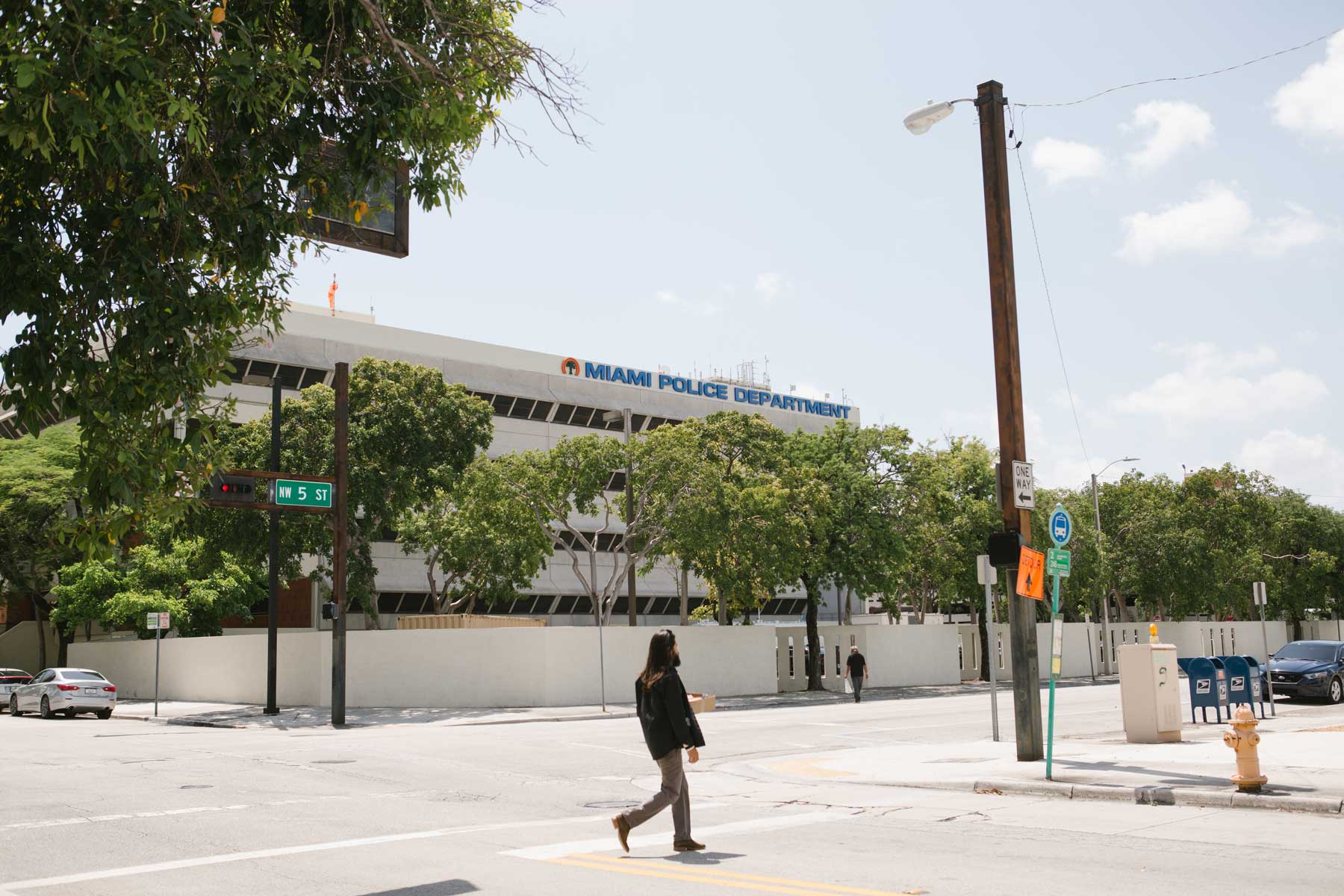
“Because they’ve had the bad luck of being a victim in the city of Miami, then they’re missing out on humanitarian protections they’re entitled to under the law,” said Michelle Ortiz, deputy director of the legal nonprofit Americans for Immigrant Justice in Miami.
In an interview, Chief Jorge Colina said he would look into his agency’s certification review process.
“It does sound like that’s a very low number,” Colina said. “It’s certainly something I want to go back and revisit and just make sure that we are doing our part to represent the victims, because that’s our function.”
“Somebody has to speak for the victims,” he said.
Several lawyers said Miami police mail generic one-page letters offering no explanation for the agency’s refusal to sign. Colina acknowledged that he is not familiar with the department’s U visa procedures, but said he has begun talks with his staff about these concerns.
He said his staff told him that they don’t include details on denial letters because someone could use them as a way to game the system. And they said they see the same attorneys’ names on U visa requests and worry those attorneys are taking advantage of immigrants.
“We just want to make sure that someone isn’t selling a false idea to someone,” Colina said.
The department provided no evidence of any suspicious behavior by attorneys.
Why Alcantara Left Honduras
Nataly Alcantara tried to live a normal life in Honduras. She went to college for a business administration degree. She’d ride her bicycle to run errands. She worked at her uncle’s check cashing business on weekends.
But the violence that permeates much of the country found its way into her life. Her uncle was shot dead in March 2008, and a few months later, the threats against Alcantara began.
Men approached her while she biked to the pharmacy. They showed up at the family’s house. It was after a stranger called her mother and said her daughter was in danger that Alcantara decided to leave her hometown for a few months, moving 22 miles away.
Eventually, Alcantara resumed her quiet life. She graduated from college and got an administrative job at a beverage company. She got married and had a son.
But in 2014, the threats began again. Local gangs often force residents to pay a monthly fee – “la renta” – on their homes and businesses. Strangers called Alcantara and demanded half her paycheck.
The final call cemented Alcantara’s decision to leave Honduras: If she didn’t comply, the caller said, they’d kill her son.
Her husband, a professional soccer player, arrived first in Texas. Alcantara was eight months pregnant when she and her son were detained in McAllen in May 2014 and released a few days later. Alcantara has a pending asylum application.
The family moved into the duplex in Miami and split the rent with three roommates. They converted the living room into their new home.
Then one night, the shadows showed up.
When Mass Shootings Hit Immigrant Communities
The U visa has long since outgrown its roots as a way to protect victims of domestic violence and sexual assault. It is now a key player in the aftermath of mass shootings. From the Pulse nightclub shooting in Orlando, Florida, to the recent Walmart tragedy in El Paso, Texas, these acts of random violence have devastated immigrant communities, even when they weren’t always included in the narrative.
On Oct. 1, 2017, as a gunman opened fire on a Las Vegas country music festival and killed 58 people, about 120 of the workers there were undocumented, according to local activist Leo Murrieta. The youngest survivor, who was on his first day on the job, was 15 years old.
In the aftermath, the city opened a response area at the convention center, where survivors could obtain mental health counseling and other resources. But many undocumented survivors feared walking up to the center surrounded by squad cars and police, Murrieta said.
“Nobody in our state understood that undocumented people were afraid of police,” he said. “How are people supposed to feel safe to go and ask for help?”
Murrieta, director of the nonprofit Make the Road Nevada, mobilized with other local advocates to get services for the survivors, including food, medical attention and transportation to doctor’s appointments. Murrieta remembers taking statements from survivors whom police hadn’t interviewed yet.
One of the victims fainted as she recounted the details to Murrieta. “It was gut-wrenching,” he said.
The Legal Aid Center of Southern Nevada also stepped in to help and processed U visa paperwork for about 60 victims. But police were resistant. They told lawyers that the shooter was identified, so victims wouldn’t be helpful to the investigation.
So the center wrote a memo that explained that survivors qualified because they were willing to come forward and talk about what they witnessed. Gabrielle Jones, a Legal Aid attorney, remembers one survivor who spoke to both the local police and FBI.
“She really wanted to make sure this didn’t happen again,” Jones said.
“We have clients who remember lying on the ground and hearing bullets land on the side of their heads, not knowing if they were going to get home that evening to see their children,” she added.
After a few months of discussions, Jones said, the police department began signing requests. In June 2018, Sheriff Joseph Lombardo also agreed to meet with some of the victims and hear their stories.
Las Vegas police spokesman Aden Ocampo Gomez said the agency authorized more staff to sign off on U visa requests after the shooting. The agency also decided that any person who was at the festival and gave a statement to police would qualify for the certification.
Attorney Edgar Flores helped a few victims pro bono to obtain certifications. It took some compromising with the agency, he said, which finally agreed to sign some requests with a caveat: They would write in the certification that the victim’s statement wasn’t helpful to the investigation.
“Some of these people that we represented are genuine heroes. There’s testimony from other people saying this person picked me up and put me in a truck when I had my arm blown. This person pulled me to the ground,” Flores said. “They were helpful. They were doing things that only members of law enforcement are paid to do. That is a form of being helpful.”
Flores, who is also an assemblyman in Nevada’s Legislature, had been seeing agencies create their own internal policies for years. He recently led the passage of a new law that requires police departments to review U visas by the federal standards and collect data on their approval and denial rates.
“No agency had any type of transparency as to when they were or weren’t doing it. They weren’t all following the same rules, and more importantly, they were creating their own rules that were outside of Congress’ intent,” Flores said. “We set out to really fix this problem.”
Congress didn’t include any provision in the U visa statute that would hold agencies that didn’t consider requests accountable. But in the last decade, 12 states have tried to fill that vacuum.
California passed its U visa statute in 2016. Lawyers and advocates had created a database to keep track of agency policies across the state and noticed that some departments had “opted out” of the certification process altogether, while many victims experienced months-long delays in obtaining signatures.
Under the law, California agencies must process requests within 90 days or within 14 days if the victim is at risk of deportation.
“The law has done its job in terms of forcing law enforcement agencies who were just generally refusing to sign, period, to at last come to the table,” said Gina Amato Lough, a senior attorney for the Immigrants’ Rights Project at Public Counsel in Los Angeles.
Ten other states – such as Maryland, Illinois and Washington – have passed similar laws. Last November, the New Jersey attorney general sent out a directive to police and prosecutors requiring them to comply with the U visa regulations.
What She Did to Help Police
The day after the robbery, Alcantara called the number of her stolen cellphone.
“I wanted to know if they would answer,” she said. “And they did. And I told them I was the woman they robbed.”
The woman hung up. Alcantara called the police to tell them, and they put in a request for her phone records. Maybe, Alcantara thought, officers could use her stolen phone to find the suspects.
Police reports show that Alcantara and her husband met with police, including investigating officer Luis Sierra, at least three times. They answered officers’ questions. Sierra wanted to know whether Alcantara knew the women before the robbery, but she didn’t. At their house, police showed them mugshots of potential suspects, but Alcantara couldn’t recognize any of the faces.
The biggest break in the case came Nov. 16, 2014, when Sierra obtained call history records for the stolen phones, records show. The logs showed Alcantara’s phone was used seven times a few hours after the robbery.
Sierra eventually found someone whom the suspect had called with Alcantara’s phone. The man told Sierra that the woman, an ex-girlfriend, had asked him for money. He said she should be arrested because “she is not safe on the streets.”
A background check showed she had a warrant out for trespassing. After her arrest Dec. 3, she “denied any knowledge or involvement” in the robbery, records state. The police never charged her with the robbery.
“At this point in time, there are no other leads or solvability factors,” Sierra wrote in the file. At the bottom of the report, he typed “NFI” – no further information.
Sierra, who is now a lieutenant with the domestic violence unit, did not respond to emails and calls for comment.
While Alcantara still was helping police, a friend from Honduras mentioned during a phone call that she had heard about a visa for crime victims. Alcantara showed up to immigration court for help, and staff referred her to Catholic Legal Services, an immigration nonprofit.
In April 2015, a lawyer filed Alcantara’s certification request to the police department.
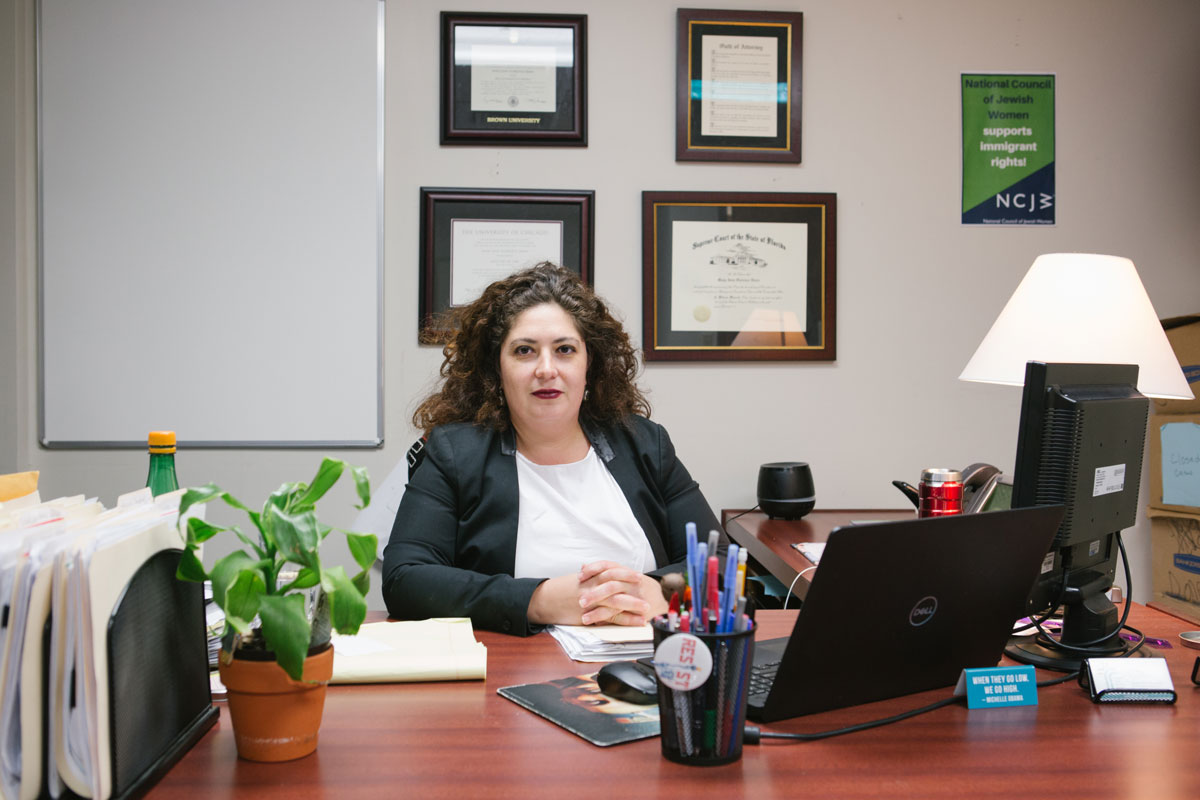
Five months passed without a response.
Alcantara’s lawyer at the time, Ana Quiros, sent a follow-up letter. “She was helpful, and will be helpful in the future,” it read. “The U visa was created specifically for this type of factual scenario.”
Nearly a year after the robbery, Alcantara received a one-page letter: “After careful review, it has been determined that the Miami Police Department will not be certifying the application.”
“An agency’s decision,” the letter continued, “is entirely discretionary.”
Alcantara didn’t see the robbers brought to justice. And she didn’t even get a chance to apply for her visa.

For Alcantara, now 32, her ordeal has changed the way she views police in the United States.
Before leaving Honduras, Alcantara told police about the threatening phone calls, but nothing came of her reports. In the United States, Alcantara was searching for protection and a safe place to raise her kids. The police here are different, she thought.
“I thought they were like in the movies,” she said. “Everything gets solved quickly and they arrest the burglars or murderers. I thought it was the same in real life.”
That changed after she received Miami police’s three-paragraph denial letter.
“The truth is,” she said, “they’re the same in every country.”
After the TV reporters aired their stories and the police stopped calling, no one asked Alcantara anymore about the night of the robbery.
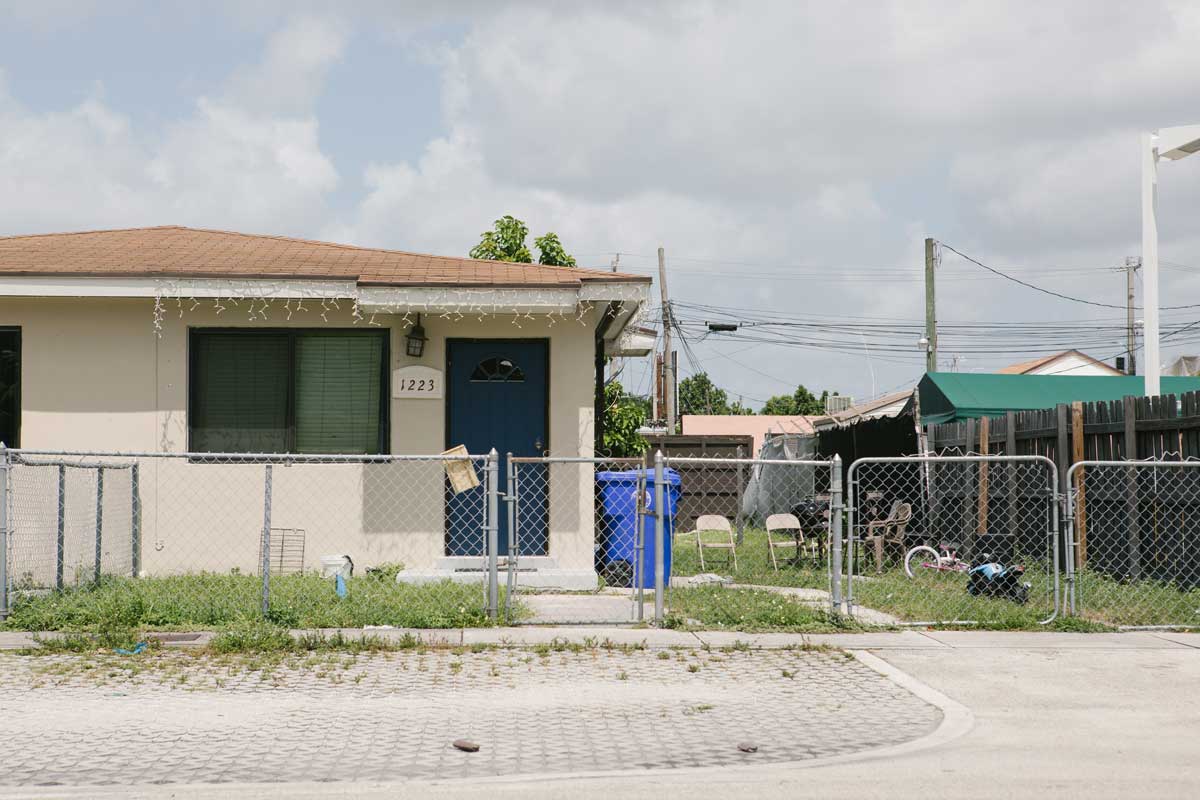
The family couldn’t afford to move out of the duplex right away, so they stayed. Until they moved a few months later, Alcantara could not sleep well at night. Her toddler son would burst into tears when he saw strangers wearing dark clothes.
It took a few years of saving money, but the family now owns a small two-bedroom home in Miami. Her son is a thriving 6-year-old who likes to run through the house with his 5-year-old sister.
While they’re at school, Alcantara stays home and takes care of her 1-year-old son. Some nights, while her husband is home from work, she sells snacks and sodas during soccer games at a nearby park.
In the afternoons, after the kids are home from school, Alcantara walks to the dining room. She picks up a metal chair and pushes it against the front door.
If an intruder comes again, she’ll hear them this time.
This story was edited by Andrew Donohue and Matt Thompson and copy edited by Nikki Frick.
![]()
Press freedom is under attack
As Trump cracks down on political speech, independent media is increasingly necessary.
Truthout produces reporting you won’t see in the mainstream: journalism from the frontlines of global conflict, interviews with grassroots movement leaders, high-quality legal analysis and more.
Our work is possible thanks to reader support. Help Truthout catalyze change and social justice — make a tax-deductible monthly or one-time donation today.
